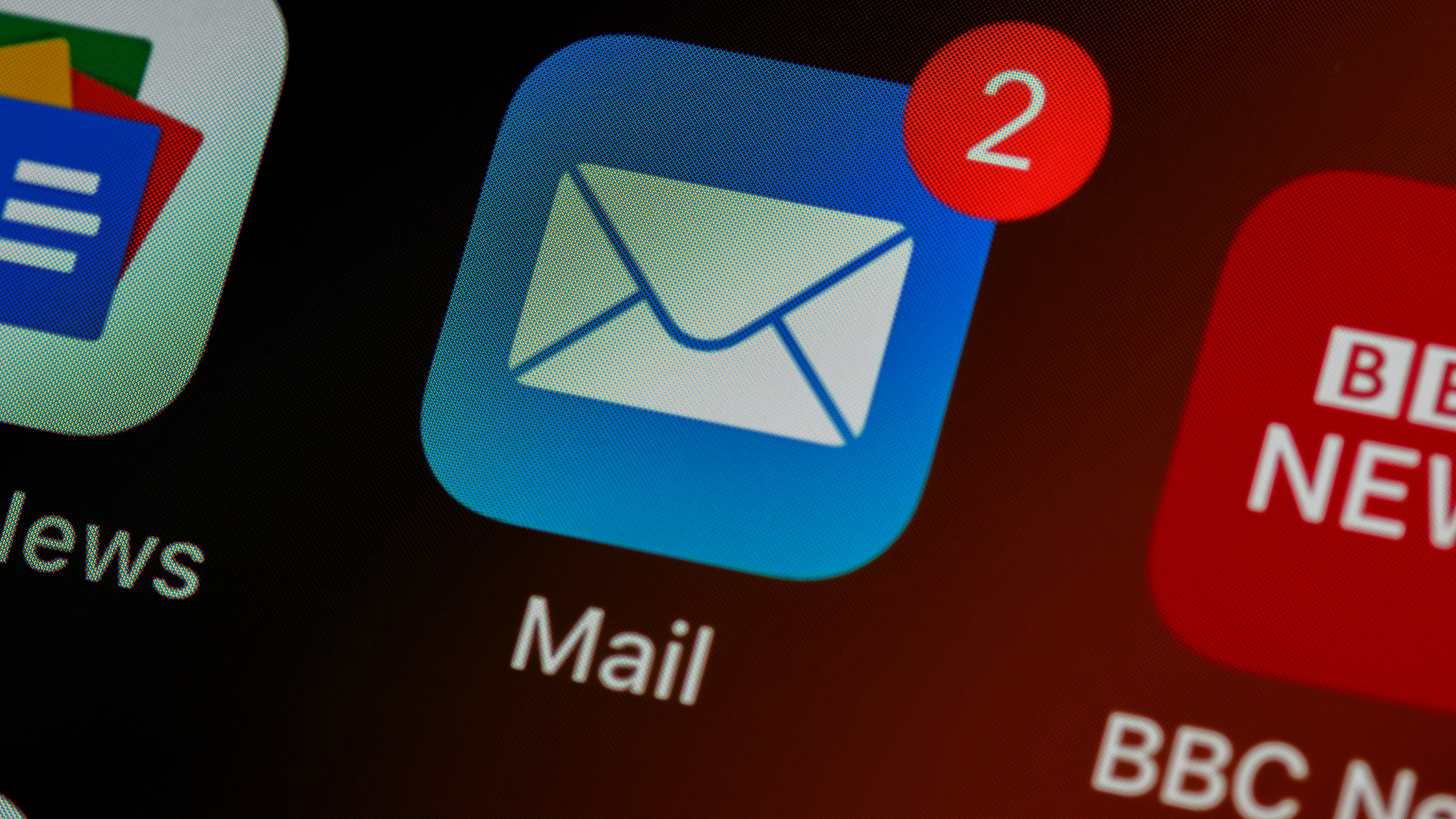A professional email address is a vital part of any small business’ communications strategy. But how do you choose the right provider? Not to worry! We’ll walk you through the most popular free email providers so you can decide which one is right for you.
Types of Email Accounts
There are two kinds of email providers: email clients and webmail. Which type works best for you and your business is the first thing to consider when choosing an email provider.
Email Clients
With email clients you have to install an application on your computer to send and receive emails. For example, Microsoft Outlook, Thunderbird, and Apple Mail. An email client is a good choice if you have limited bandwidth.
Webmail
Webmail is accessible via a browser and is stored on the cloud instead of your device. For example, Gmail, Yahoo! Mail, and AOL. Webmail is a good choice if you need to check your email on multiple devices.
.jpg?width=6000&name=andrea-de-santis-bZLj_AVBn4s-unsplash%20(1).jpg)
Email Protocols
Email protocols are the systems that fetch your emails for you. Here are the three types:
POP3
Post Office Protocol (POP) allows users to access email offline, requiring less bandwidth than other protocols.
IMAP
Internet Mail Access Protocol (IMAP) is an older email protocol. With it, your email stays online while you access and manage it.
Exchange
Exchange is similar to IMAP, except it also allows users to access tasks, calendars, and contacts tied to your email address across multiple devices.
.jpg?width=4584&name=utsav-srestha-6HH8txwF2_U-unsplash%20(1).jpg)
Features to Keep in Mind
What else makes a good email provider? Here are some other things to consider when you’re choosing one:
- Storage limits
- Spam filter
- Mobile access
- Email and data encryption
The Best Free Email Accounts
Here are the best free email service providers and what makes them great. Many of these providers also have paid plans for additional storage and other customizations.
1. Gmail

We all know Gmail. Their versatility, connectivity to other Google Suite products, and user-friendliness make it the popular choice that it is.
Type of email: Webmail
Highlights:
- 15 GB of free storage
- Accessible from any device
- 99.9% spam protection
- Lets users un-send emails
- Native file collaboration with Google Drive
- Suggested text
- Easy access to other Google products
Mobile Apps Available:
iOS
Android
Sign up here.
2. AOL
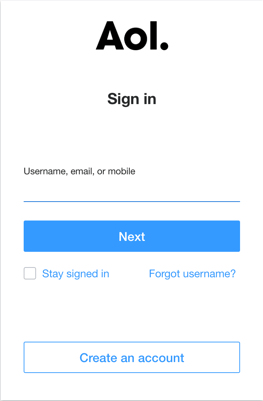
AOL mail may seem retro, but they’ve done plenty to keep up with the times since Verizon bought them in 2015.
Type of email: Webmail
Highlights:
- Unlimited storage space
- Highly customizable
- Spell checker
- Ability to import contacts from a CSV, TXT, or LDIF file
Mobile Apps Available:
iOS
Android
Sign up here.
3. Outlook.com
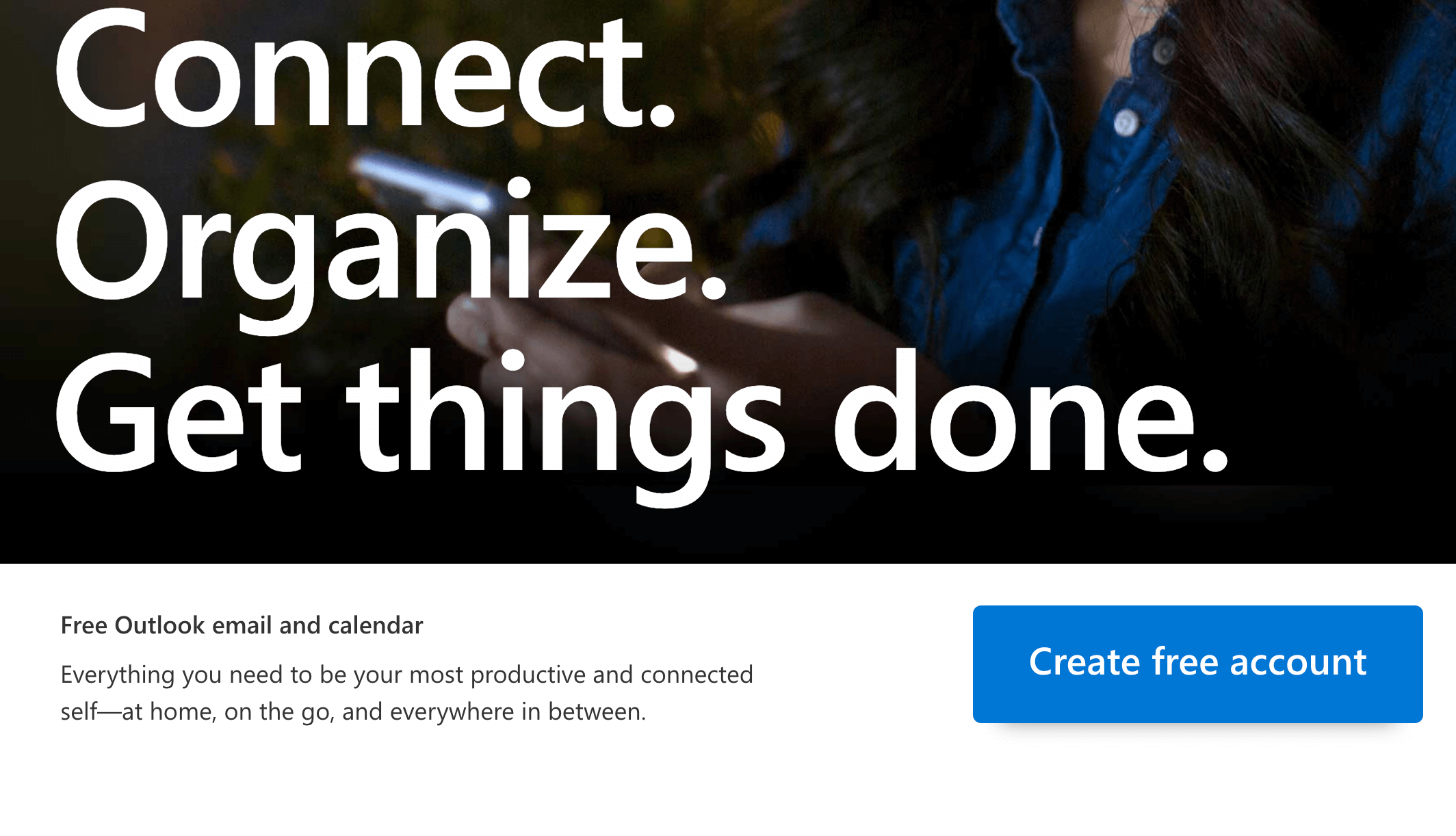
Microsoft has rebranded their email client by merging Outlook and Hotmail and adding more exciting advanced features.
Type of email: Email Client
Highlights:
- Multiple app integrations
- Easy access to Skype and other Microsoft products
- Good search feature
- Easy organization
- Doesn’t scan messages for advertising purposes
Sign up here.
4. Yahoo! Mail

Yahoo mail is great for anyone who sends a lot of attachments. They make it easy to search every attachment you’ve ever sent or received. And yes, that’s one terabyte of free storage.
Type of email: Webmail
Highlights:
- 1 TB of free storage
- Media and attachment history
- Seamless connection with Yahoo Calendar
- Customizable
- Good security
Mobile Apps Available:
iOS
Android
Sign up here.
5. iCloud Mail
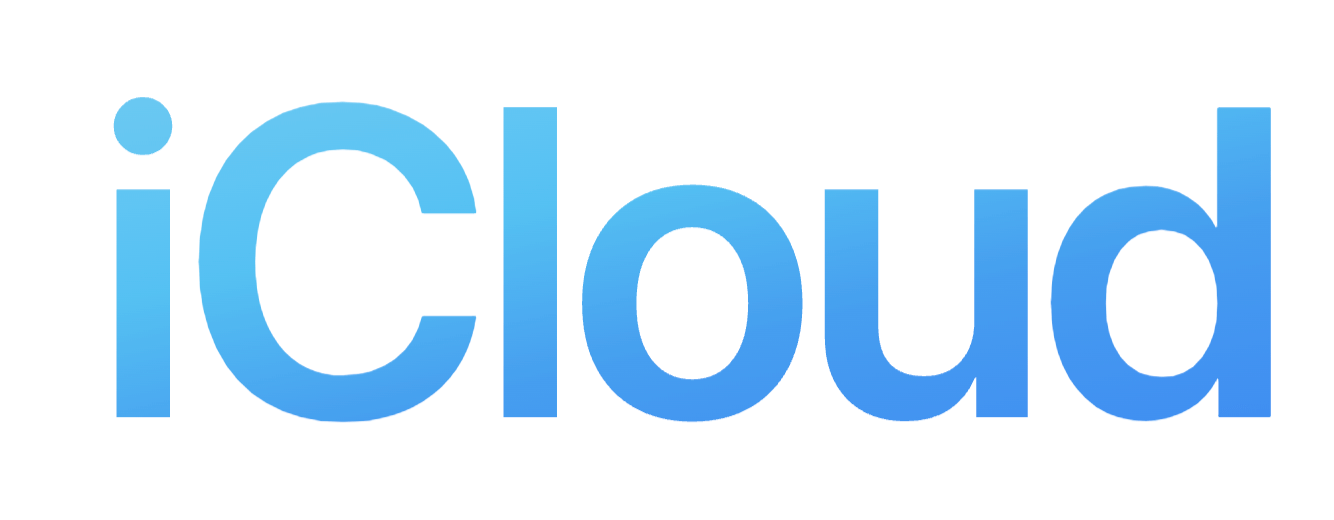
If your whole life revolves around Apple products, iCloud mail is for you. Mac and iPhone mail apps are designed with iCloud users in mind and integration with other Apple services is a breeze. However, keep in mind that the storage is shared between all apps associated with your email address. If email storage is a priority, consider the paid plans at $0.99 or $9.99 per month.
Type of email: Webmail
Highlights:
- Search functionality
- VIP sender feature
- One-click unsubscribe
- 5 GB of free storage
Sign up here.
6. Mozilla Thunderbird
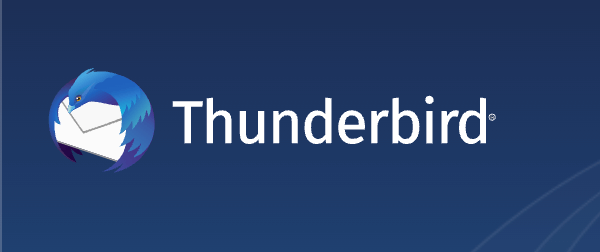
Thunderbird, the free email client from the company that brought us Firefox, is easy to set up and user friendly. It’s easy to use while also offering customizable themes and app extensions.
Type of email: Email Client
Highlights:
- Customizable
- Multiple email tab functionality
- Large extension library
- Easy organization
Sign up here.
7. Yandex

Russia-based email service Yandex may not be well known in the United States, but it has some cool features. The built-in translator makes it a good choice for users with international clients. It can also sort emails into categorized inboxes by recognizing keywords in subject lines and body text.
Type of email: Webmail
Highlights:
- Auto-reminder for follow-ups
- Built-in translator
- Categorization by keywords
- Read receipts
- 10 GB of free storage
Mobile Apps Available:
iOS
Android
Sign up here.
8. Zoho Mail

Zoho mail is a popular choice for startups and small businesses. The features that make it such a popular choice include its privacy features, user-friendliness, and ability to create up to twenty five email addresses with one custom domain.
Type of email: Webmail
Highlights:
- Easy integrations
- Easy to use with custom domains
- Email encryption
- Customizable
Mobile Apps Available:
iOS
Android
Sign up here.
9. Proton
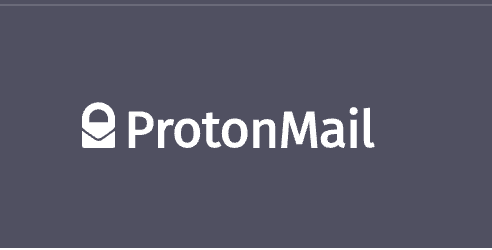
Proton, formerly known as ProtonMail, is known for having impressive security features without being hard to use. With its end to end email encryption, only you and the recipient can see the emails you send and they disappear after a month. ProtonMail is a great choice for businesses that work with sensitive information.
Type of email: Webmail
Highlights:
- End to end encryption
- No personal information required to open an account
- Compatible with other email providers
Mobile Apps Available:
iOS
Android
Sign up here.
10. GMX Mail
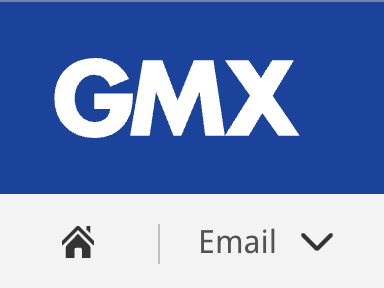
GMX mail is an underrated mail service with plenty of unique features including an impressive amount of free storage and the ability to send attachments up to 50 MB. But the best one for small businesses is the ability to use one account for up to 10 email addresses.
Type of email: Webmail
Highlights:
- 65 GB of free storage
- Allows up to 10 alias email addresses from one account
- Up to 50 MB attachment capability
- Effective spam filter
Sign up here.
11. Trustifi

Trustifi is a very secure email account option. Users can control who sends them messages by whitelisting and blacklisting senders. Trustifi is compliant with HIPAA/HITECH, PII, GDPR, FSA, LGPD, CCPA, and other information security protocols, making it a great choice for anyone who works with sensitive information.
Type of email: Webmail
Highlights:
- Data loss prevention
- Ransomware and fraud detection
- Ability to set expiration dates on emails
- Integration with other email systems
- End to end encryption
Sign up here.
12. Mailfence

Belgium-based email provider Mailfence is notable for its security features. Thanks to Belgium's data privacy laws, users’ data is locked away from third party access.
Type of email: Webmail
Highlights:
- Easy integrations
- End to end encryption
Sign up here.
13. Mail.com

Mail.com may sound boring, but it’s easy to use with custom domains and its unlimited storage and other features make it a great free choice.
Type of email: Webmail
Highlights:
- Easy to use with custom domains
- Unlimited storage
- Antivirus tool
Sign up here.
14. Tutanota

Open source email client Tutanota is a great choice for users who value security. Not only does it encrypt its emails, but it’s completely ad free.
Type of email: Email client
Highlights:
- Encrypted email
- Mobile app
- Doesn’t scan emails for advertising purposes
Mobile Apps Available:
iOS
Android
Sign up here.
Using Free Email Services with Your Domain Name
Creating email addresses with a custom domain is a great branding idea for business email addresses. Would you rather be bob@bobsburgers.com or bob.bobsburgers@provider.com?
You can create email addresses for a custom domain by adding MX records to its DNS. Some website builders, including SAV, have DNS templates for the most popular email providers to make configuration easier.
How Sav Can Help
No matter which email provider you choose, Sav makes it easy to connect it to your custom domain and keep every part of your business’ online presence running smoothly. Get started today!
Newsletter
Popular
Top Articles
Recommended articles
How to Make a Media Kit
What is a Media Kit? A media kit, also known as a press kit, is a document that businesses give to journalists and media outlets before an...
Read moreWhat is Brand Voice? [And How to Create One]
What is Brand Voice? A brand voice is the unique personality a brand takes on in all of its communication channels. And it’s not just about...
Read moreA Beginner's Guide to the Product Development Process
What is Product Development? Product development is the process of creating a new product or updating an existing product from idea to...
Read more
